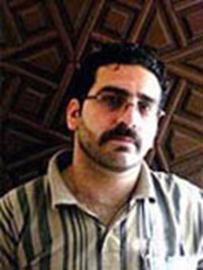The Questions of Oral History Interview (Part III)
Interviewer Should Use Ethology
Akram Dashtban
Translated by Ruhollah Golmoradi
2018-7-3
The following text was prepared based on the call for questions on oral history in which from perspective of one of those who has produced works by using this method, the question "what are characteristics of oral history interview questions?" has been answered.

Saying that there are so many books on how news interviews have been published and one of main strategies in oral history interview is interviewee's intimacy with memory teller, Hasan Shirdel added, "An interview in oral history which is conducted by interviewer is different from news interview. In an interview of oral history, interviewer should use psychological techniques and know ethology. When he/she goes to a warrior to record his memories, she/he has to study lives of people who had experienced the war, or narrator's friends from whom some books have been published before asking and conducting the interview; or, if she/he does not have access to books, attend in their friendly meetings so that she/he can communicate with interviewee or narrator's living environment and ask applied questions based on it. When interviewer goes to narrator with this background, he/she can persuade narrator to carefully remember memories with challenging questions derived from similar experiences. Interviewer in oral history walks on the edge of the sword, and if he/she makes a mistake, he/she enters story space, and if proceed properly it would be the same oral history.
Pointing out that for oral history in field of activity of this method in our country there is still no original and defined basis for interview, he says, "no fundamental basis have been adjusted and determined in Hozeh Honari as a center that addresses this topic. In our country, one who wants to go to story writing read books of Ebrahim Younesi and Jamal Mirsadeghi and by referring to their books will become familiar with framework of story writing; but in field of oral history, there has not been any book in subject of biography interview, so each person raise a subject as he/she likes and writes a book, and then wrestle with whether introduce the book as memory or oral history.
■
Iranian Oral History Website raises questions about oral history for experts and practitioners of this subject and releases answers for the audience. Responses altogether will have significant results. If you have any questions, please post it in this page in order to read comments of experts and practitioners of oral history about it.
A Strong Interview Is Tied with Research
Interview Is the Heart of Oral History
Number of Visits: 4790








The latest
Most visited
A Statistical Glance at the Oral History Archive of Iran
The Oral History Weekly, an electronic periodical that commenced its regular publication in November 2010, now stands on the threshold of releasing its 700th issue. Published every Wednesday, the newsletter consolidates all content posted on the Oral History website over the preceding week and circulates it to more than 850 subscribers via email. This report—drawing upon statistical data from content published on ...A Memory of an Army Aviation Pilot
I was taking a nap in my office when the door opened and a soldier entered the room. I got up from my chair and after arranging my clothes, I prepared to hear the soldier's news. After saluting, he said, "Captain, the commander has business with you." And with this, he paid military respect and left the room.Monafeghin: A New Deception
July-August 1989Following the discussions around the asylum of Iraqi prisoners of war in Iran during peace negotiations, the Iraqi side, not wanting to fall behind, launched their own campaign to offer asylum. At the outset, they attempted to attract prisoners by making grand promises ...
Supports from Guilds and Bazaars peaple
Memoirs of Haj Hossein FathiOur base of operations had become the Saheb al-Zaman Mosque in the Kamp-Lou neighborhood of Ahvaz. With the assistance of Brother Khani and his companions, we began preparing hot meals and sending them to the frontlines. We ourselves, along with several fellow merchants from the bazaar, entered the conflict zone, bringing warm clothing, ...


